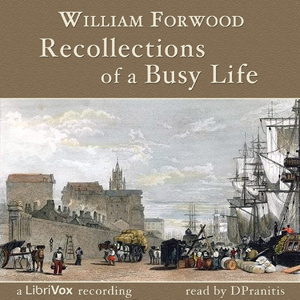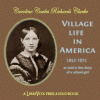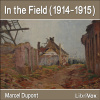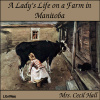William Forwood - Recollections of a Busy Life
William Forwood
100%
Speed
Memoirs
674
Summary
Liverpool in the second half of the 19th century was burgeoning with rich merchants and swollen with poor immigrants. It was known variously as the «New York of Europe» and the «Black Spot on the Mersey.» Waist-deep in this mosaic we find William Bower Forwood making a busy life for himself, making his fortune in cotton trading (including running the American blockade of the Southern States) and then delving into public affairs. We see the civic leader, dedicated to the betterment of «the good old town and the trade thereof,» and we see the statesman and tourist, dining with kings and wrestling with presidents. We see the effect that social environment has on a man's view of the world, with Sir William's casual categorization of the various races' assumed work habits, from the Caribbean 'Negro' to the Indian 'Coolie,' his breezy dismissal of the Jamaican rebellion, his confidence in the steady hand of the Mexican dictator and his pride in the English superiority of business sense and management. But we also see the profound effect that a man can have on the society around him, working tirelessly to build libraries, parks and gardens, public transport, housing for the poor and a great cathedral for Liverpool. Forwood records these memoirs for his family members, and anyone they care to share them with, «to inspire them to make some effort on behalf of our great and glorious city—to elevate its social and intellectual life, to adorn and beautify its public streets and places, to brighten the lives and homes of the people, to carry forward and onward the great temple we are building to the glory of God,» at a time when such things mattered to people. (Summary by DPranitis)
Authorization
By logging in, you agree to the terms and conditions.












No comments